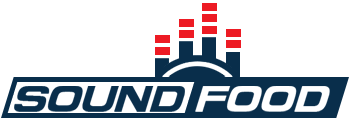 Panasonic on Tuesday introduced a write-once Blu-ray disc with a writing speed that's faster than other discs available today in the high-definition format.
Panasonic on Tuesday introduced a write-once Blu-ray disc with a writing speed that's faster than other discs available today in the high-definition format.
The consumer electronics company said the write-once disc has a 4x writing speed, versus 2x for most other Blu-ray discs. In addition, the single-sided disc is available in 25 Gbytes and 50 Gbytes. The latter version is dual layer, which means the disc doesn't have to be turned over while recording data.
Panasonic, which is the brand name of Matsushita Electric Industrial, plans to release the 25-Gbyte version this month and the larger disc in September. The discs have a maximum data transfer speed of 144 Mbytes per second, which means a 1 Gbyte of data can be written onto the disc in a minute. Panasonic claims to be the first company to develop a 4x Blu-ray disc that can store 50 Gbytes.
Speed is important on high-definition discs, if they are to become options for storing data as well as play movies. Panasonic says the new discs have new technology that reduces the error rate to one-tenth of a conventional disc. Fewer errors mean higher reliability and better quality recording.
The Blu-ray format, supported by Sony and partners, competes with HD DVD, backed by Toshiba and others. Many analysts blame the ongoing battle for market leadership as a major contributor to the slow sales of high-definition DVD players. Toshiba, for example, recently slashed its sales target for the year for its high-definition DVD players by 44% to 1 million, primarily because of weak sales in the United States.
While there's no clear winner, Blu-ray currently has an edge over HD DVD and accounts for more than 60% of the market for movie DVDs, according to researcher Nielsen VideoScan. Besides electronic companies, movie studios have also taken sides. NBC Universal's Universal Pictures backs HD DVD exclusively, while Sony Pictures Entertainment, Walt Disney Co., News Corp.'s Twentieth Century Fox, Lions Gate Entertainment Corp. and MGM are exclusively Blu-ray. Viacom Inc.'s Paramount Pictures and Time Warner Inc.'s Warner Bros, back both formats.
writed by Antone Gonsalves






